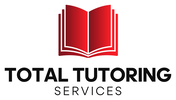|
With the fourth quarter beginning and spring getting into full swing, many students and families begin to think about the end of the school year. High school seniors aren't the only ones who experience "senioritis". Elementary school students can also begin to shut down and dial back their efforts towards the end of the school year. Here are a few tips to help your student finish the school year strong.
Get Organized It’s time to take stock of end-of-the year assignments and to see what is due and when. Help your student make a schedule to stay on top of term papers, tests and reading assignments. At this time of year, binders can become full and cumbersome. Desks and lockers can be cluttered with old projects and notes, creating an organizational nightmare. Help your student go through his or her workspace, binders, and notebooks, clearing out information that is no longer needed. Organize current files and projects and then create an end-of-the-year timetable and set milestones for class work and commitments. This de-cluttering effort will help your child stay focused and more productive. Continue Reinforcing Routines This is an important time of year to hold strong with family routines including time for studying, recreation, family meals and sleep. Children thrive on consistency and definitive boundaries and they find comfort in knowing the expectations and routines of the family. Incorporate Play into Your Day Even as adults, sunny days make it tempting to take a little longer lunch break or cut out of work just a little early. However, as a kid, staring out the window or daydreaming about recess won’t get them anywhere. Make sure your students get the outdoor time they need after the bell rings. Ensuring they get their daily dose of fun in the sun after school means that they won't feel like they're missing out as much between 9 to 3. Keep a Family Calendar Springtime can be a very busy time of year with testing, sports and extracurricular activities, not to mention the distractions of the warmer weather. Kids, as well as adults, have a hard time remembering everything that they have to do. A family calendar can be a great way to keep everyone on the same page with schedules, practices and upcoming assignments. Find Excitement in Every Day Rather than viewing this phase as the "final countdown," continue to encourage enthusiasm in each and every day. Whether it's anticipation over a field trip, a surprise note in their lunchbox, or a classmate's birthday, make sure that they have something to look forward to every day as they head off to school.
1 Comment
Source: http://www.education.com/magazine/article/50-books-child-read-kindergarten/ by Education.com
Organizational skills do not come naturally; they are a learned ability that can help your students in their academic and personal lives. With large class sizes and demanding curricula, most teachers barely have enough time to teach coursework, let alone study skills.
If your child is forgetting to do homework or assignments or failing to turn things in, their grades could seriously be impacted. Not being able to prioritize tasks and organize activities means they don’t leave enough time to study or do their assignments. When this happens, bad grades and a feeling of being overwhelmed can cause damage to confidence and self-esteem. Roadmap to success One of the biggest problems for students is simply forgetting upcoming tests, assignments and homework. Providing your child with a planner or agenda book can be the first step to helping them stay on top of their work. Encourage your student to write down assignments the MOMENT they hear they teacher assign them. When there is no homework, write “None” so that every class has something under it’s name and you can be sure that you have kept track of everything. Help your student to set weekly goals and discuss together ways in which they can achieve their goals each week. Prioritizing tasks One of the biggest obstacles to being organized is an inability to prioritize. If your child is falling behind, evaluate their after-school activities to see if they aren’t overloaded. If social or extra-mural activities are taking up study time, it may be time to reconsider. Another important aspect is to say no to social interactions during study time. This means no texting or calling during times marked off for studying. Students don’t always have to say ‘no’ to social invitations, but they must learn to say ‘not now’. The right environment Creating an organized, quiet, well-lit and comfortable study area is imperative. If you want your student to be focused and to make the most of their study time, then provide them with a space that is free from distractions, noisy siblings and TV. If your home cannot accommodate this space, consider the library, a neighbor’s house or even a quiet coffee shop. Get a tutor At Total Tutoring Services we realize that sometimes a student needs more than just tutoring in one particular subject. Every day we hear from students and parents about late/lost assignments, inefficient study habits, and “I thought I was ready for the test.” Working with students on improving their academic skills is at the core of what we do. Simply providing content-based tutoring for a subject may not directly address the real problems holding a student back. Our goal for every student is to teach him the skills necessary for success on his own. Key areas of academic skills coaching include:
Our academic coaches teach kids and teens to plan, prioritize and organize efficiently and effectively. They prepare students for success not only academically, but for life! This past week Total Tutoring Services was featured on the CBS Baltimore Ask an Expert Series to share some advice to parents on how to get their child ready for Kindergarten. With the start of the school year right around the corner, many families will be sending their little ones off for the first time. Here are some handy tricks and tools to help your kindergartners -- and you -- get ready for the school year.
CBS Baltimore Ask An Expert Read With Your Child Reading with your child is hands down the most important activity you can do to help your child develop language and reading skills. Set aside a special time each day to read together. Read your child’s favorite books and rhymes over and over. Read favorites from your childhood, too. Talk to your child about the characters and the story. Let your child take more control by turning pages, pointing to the title of the book, and retelling some favorite parts of familiar stories. Visit your local library and let your child choose their own books. Then go home, snuggle up, and help your child develop a love of reading. Build Early Math Skills Opportunities to teach our children basic math skills are all around us! As you go through the day count the buttons on your child’s clothing as they get dressed, count how many times they can bounce a ball and count the stairs when heading up to bed. Point out numbers in print on a speed limit sign as you drive down the road or let them help you read the prices at the grocery story. Cook together and have your child help you measure ingredients. Play a board game and count the dots on the dice and the spaces you need to move. Math can be made “real” and meaningful just by pointing it out in the world around you. Build Fine Motor Skills Give your child crayons and paper often. Let them write letters, draw pictures or even just scribble. Drawing straight lines, curvy lines and shapes will help them to strengthen their hand muscles for writing letters and words later. Let them explore with a variety of writing options (colored pencils, crayons, markers, paint). Introduce them to scissors and let them cut up play dough, magazines, straws and yarn. You will end up with a house full of confetti along with a happy child who is more confident in his or her cutting abilities. Encourage Responsibility It’s so easy as parents to take responsibility for our children’s many, many things. There is often so much of it and kids tend to be slower and it’s easier to just do it for them. However, in Kindergarten they are going to be responsible for their own belongings and materials. Start early by teaching your child how to put away things when they are done playing with them at home. Encourage them to clean up their toys, put lids back on markers and crayons in the box. Encourage your children to take responsibility for their actions. Set the bar high, they will surprise you with what they can do. Foster Independence and Self-Care Skills Imagine a classroom full of 20+ kindergarteners all needing help with their zippers, buttons, snaps, tucking shirts in, tying shoe laces, opening lunches, emptying folders, etc. Welcome to the world of the Kindergarten teacher. As parents, you can do your part by teaching your child valuable self-care skills. Don’t assume that they can do something on their own just because you have always done it. Allow them to dress themselves. Practice managing all those buttons, zippers and snaps both on their clothing and on their jackets. At lunchtime give them the opportunity to practice opening containers, wrappers, bottles and juice boxes. Practice hand washing, nose blowing and coughing into their elbow. Practice, practice, practice! Your child’s teacher will love you for it. |
|
|
Serving the Greater Baltimore Area, including Baltimore County, Anne Arundel County, Howard County, Montgomery County, Towson, Owings Mills, Reisterstown, White Marsh, Pikesville, Cockeysville, Annapolis, Odenton, Crofton, Gambrills, Severna Park, Davidsonville, Columbia, Clarksville, Laurel, Ellicott City, Silver Spring, Bethesda, Rockville and Potomac.
|
ACT Tutors
Algebra Tutors Biology Tutors Calculus Tutors |
Chemistry Tutors
French Tutors Geometry Tutors German Tutors |
HSPT Tutors
ISEE Tutors Kindergarten Tutors Math Tutors |
Physics Tutors
Reading Tutors SAT Tutors Science Tutors |
Spanish Tutors
Statistics Tutors Test Prep Tutors Writing Tutors |
Total Tutoring Services ©2016



 RSS Feed
RSS Feed